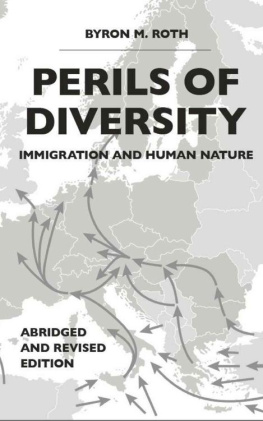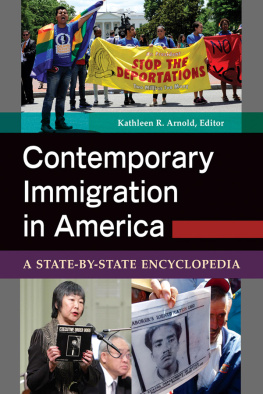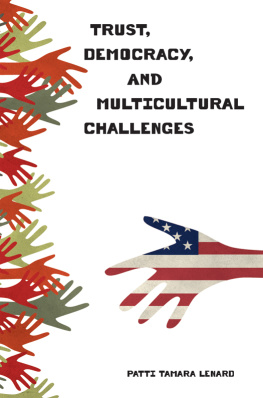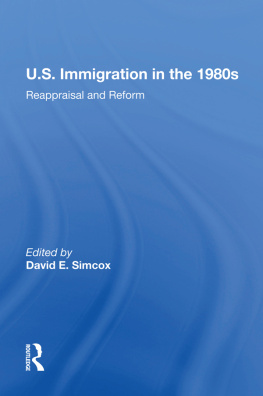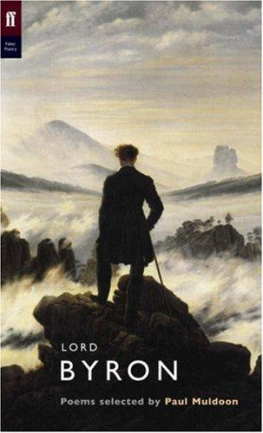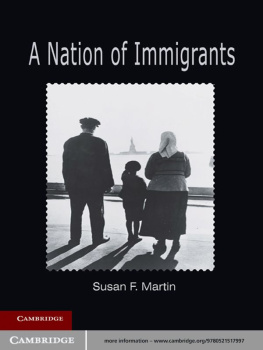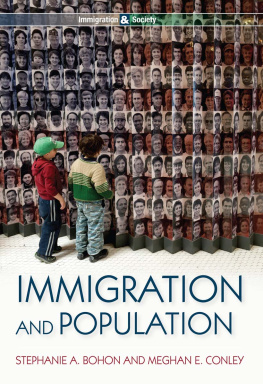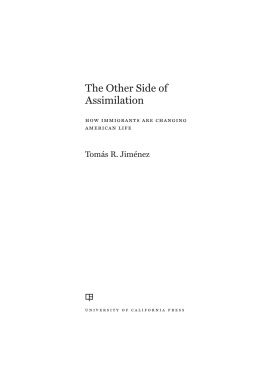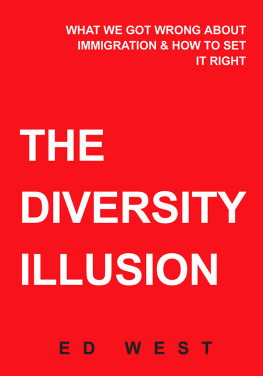From reviews of The Perils of Diversity: Immigration and Human Nature (2010)
That immigration is the most intellectually stimulating of all political topics is demonstrated by Byron M. Roths ambitious new book, The Perils of Diversity.
S TEVE S AILER AT V DARE.COM
Byron Roth is right to note that our current pattern of immigration is... of world historical significance that will affect future generations for centuries to come.... The Perils of Diversity reads easily, and rewards the reader with a thorough grasp of the crisis we face... [and] offers us a cornucopia of information and argument...
F. R OGER D EVLIN AT A MERICAN R ENAISSANCE
Roth argues that policy is uninformed by evolutionary biology and psychology. In his work he examines the intersection between culture, genetics, IQ and society.
F JORDMAN AT G ATES OF V IENNA
Roth has written a fantastic book; well-researched, science-based, and full of useful information and sharp observations.
O LE J. A NFINDSEN, H ONEST T HINKING
A vast work of scholarship. The Perils of Diversity questions the soundness and efficacy of multi-racial societies, the product of Third World immigration into First World nations... An astonishing accomplishment, given his truly multidisciplinary approach to the pivotal, polarizing and quite dangerous topic of immigration.
S PENCER Q UINN, C OUNTER C URRENTS
PERILS OF
DIVERSITY
IMMIGRATION AND HUMAN NATURE
Abridged and Revised

BYRON M. ROTH

PERILS OF DIVERSITY
Copyright 2017 by Byron M. Roth
Published by:
VDARE.com Books
PO Box 211
Litchfield, CT 06759
The VDARE foundations mission is education on two main issues: first, the unsustainability of current US immigration policy and second, the National Question, which is the viability of the US as a nation-state. We do this through the VDARE.com webzine and VDARE Books, public speaking, conferences, debates and media appearances.
For more information, go to www.vdare.com
ISBN: 978-0-9988459-0-6 (Print)
978-0-9988459-1-3 (eBook)
Printed in the United States of America
To Doris with Abiding Love
Acknowledgments
This book is an abridged and updated version of The Perils of Diversity: Immigration and Human Nature. I believe it is important to address, anew, the issues raised in that earlier work, as the problems associated with immigration have grown more severe since the original book was published some seven years ago. The election of Donald Trump was in no small part due to his commitment to reform our immigration system and align it with the interests of the great majority of American citizens. For him to fulfill that commitment will be no easy task given that the wide array of interests who benefit from the current policy will be tenacious in their attempt to thwart the changes necessary. The nature of immigration raises profound moral and social questions that, I believe, can best be addressed through sound scientific analysis divorced from political or ideological interests. I have attempted to do that in the pages that follow and leave it to the reader to determine if I have succeeded in that endeavor.
To repeat what I wrote in the earlier version:
The author of a work such as this owes a powerful debt of gratitude to the multitude of scholars and scientists upon whose effort and integrity he relies. In the case of this book, dealing as it does with many contentious issues, I owe a special debt to those who have maintained an unerring commitment to their callings as scientists and scholars. Those callings are privileged ones and carry with them the crucial duty to pursue the truth so far as it possible to be discerned. Unfortunately that duty, especially in the social sciences, has often been compromised in recent decades, sometimes to avoid the penalties that can be imposed on those who challenge conventional wisdom. Additionally, it is often asserted that some knowledge, especially as it relates to human beings, should not be pursued because it might be dangerous, or alternatively, that the truth about human nature is so relative it cannot be achieved. While the hope for ultimate unchanging knowledge is indeed a chimera, the diligent pursuit of the truth about the world in which we live is not; it is, in fact, the absolute obligation of any serious scholar and the bedrock upon which any hope of human betterment must rest. For that reason I wish to express my profound gratitude to those scholars, many cited in the following pages, who have honorably pursued their calling, often at considerable personal and professional cost.
Since I wrote those words, the penalties meted out to those who diverge from revealed politically correct understandings have become more common, and the denunciations of dissidents even more shrill and mean spirited. Nowhere is this more true than when issues surrounding possible innate characteristics that differentiate various racial and ethnic groups are discussed. The failure to address those differences hampers any possible honest understanding of the social manifestations of those differences. For instance, how is it possible to understand differences in group academic performance when one refuses to allow for the very possibility that groups differ in native ability? The confusion that results from that refusal has led to an enormous waste of resources and, most importantly, has undermined efforts to find ways to improve the educational performance of people from all racial backgrounds. Much of this will be thoroughly reviewed in the first two chapters of this book. Along with the honest scholars and scientists who have pursued such questions, I wish to also express my profound gratitude to those who have brought these issues into public view in various websites and publications that, were they not to exist, would give the established press a monopoly on what is and what is not open to discussion. Special appreciation is owed to Peter Brimelow for his webzine, VDARE and Jared Taylor for his American Renaissance. Both have been indefatigable in their pursuit of the truth and courageous in their efforts to bring those truths to the American public.
In the seven or eight years since the original version of this book was written, it has become increasingly clear how many individuals and institutions benefit from the current structure of immigration policy and why they have fought so tenaciously to resist any kind of reasonable reform. It is also becoming clearer just how dysfunctional the current system is and the damage it has done to the great majority of American citizens, especially those not part of the elite industrial, academic and political establishment. Those in elite positions have reaped great profit from current arrangements while the average citizen has suffered significant social and economic harm.
I would like to pay tribute Doris E. Roth, my wife of over 50 years. Without her forbearance, encouragement and her incisive judgment in critiquing this work as it progressed, it could not have been done. She has been a worthy friend and partner in everything I do, and for that she has my undying gratitude. Finally, I would like to thank Peter Brimelow for his willingness to publish this work.
Table of Contents
Chapter 1
IMMIGRATION AND HUMAN DIFFERENCES
During The Past Five Decades , both Europe and the United States have undergone and continue to undergo demographic changes of unprecedented proportions. Large numbers of people from Third World countries have migrated from their impoverished homelands to the developed countries of Europe and the European-settled nations of the United States, Canada, and Australia. While this seismic shift in demography is widely recognized in the West and viewed with considerable apprehension by large numbers of citizens, those who hold elite positions in politics, industry, academia, and journalism do not share this apprehension. In fact, elites have encouraged these immigration trends and strongly disparage and condemn the vast majority of citizens who view them with alarm.
Next page
